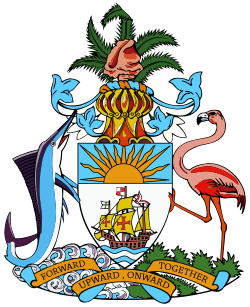 United States United States | 10 July 1973 | See Bahamas–United States relations The Bahamas and the United States historically have had close economic and commercial relations. The countries share ethnic and cultural ties, especially in education; the Bahamas is home to approximately 30,000 American residents. In addition, there are about 110 U.S.-related businesses in the Bahamas and, in 2005, 87% of the 5 million tourists visiting the Bahamas were American. As a neighbour, the Bahamas and its political stability are especially important to the United States. The U.S. and the Bahamian governments have worked together on reducing crime and addressing migration issues. With the closest island only 45 miles from the coast of Florida, the Bahamas often is used as a gateway for drugs and illegal aliens bound for the United States. The United States and the Bahamas cooperate closely to handle these threats. U.S. assistance and resources have been essential to Bahamian efforts to mitigate the persistent flow of illegal narcotics and migrants through the archipelago. The United States and the Bahamas also actively cooperate on law enforcement, civil aviation, marine research, meteorology, and agricultural issues. The U.S. Navy operates an underwater research facility on Andros Island. The Department of Homeland Security's Bureau of Customs and Border Protection maintains "preclearance" facilities at the airports in Nassau and Freeport. Travelers to the U.S. are interviewed and inspected before departure, allowing faster connection times in the U.S. |


